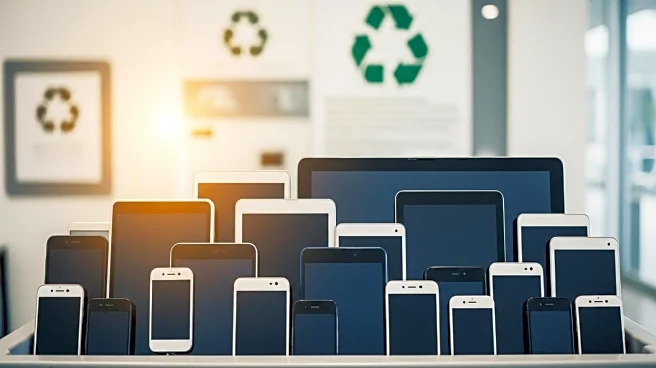What's Happening?
Major retailers like Best Buy and Staples are offering free recycling services for old electronics, including PCs, laptops, and printers. This initiative aims to reduce e-waste and promote environmental sustainability. Consumers can drop off their old devices at participating stores, with some locations offering gift cards as incentives. The recycling programs vary by retailer, with specific guidelines on the number of items accepted and potential fees for certain services. These efforts align with broader environmental goals, encouraging responsible disposal of electronic waste.
Why It's Important?
The availability of free recycling services for electronics addresses a critical environmental issue, reducing the amount of e-waste in landfills. As technology advances, the disposal of outdated devices becomes increasingly important. Retailers' initiatives not only promote sustainability but also enhance their corporate social responsibility, potentially improving their public image. Consumers benefit from convenient disposal options, contributing to environmental conservation. These programs may also influence industry standards, encouraging more businesses to adopt sustainable practices.
What's Next?
The expansion of recycling services by retailers may prompt other companies to implement similar initiatives, fostering a culture of sustainability. As consumer awareness of environmental issues grows, demand for responsible disposal options may increase. Retailers could explore partnerships with environmental organizations to enhance their programs and reach broader audiences. The focus on sustainability may also influence consumer preferences, driving demand for eco-friendly products and practices.
Beyond the Headlines
The push for electronic recycling reflects broader societal shifts towards environmental responsibility. As businesses prioritize sustainability, they contribute to global efforts to combat climate change and reduce waste. This trend may inspire other industries to adopt similar practices, promoting a culture of innovation and responsibility. The focus on recycling also highlights the importance of consumer education, encouraging individuals to make informed choices and contribute to environmental conservation.









